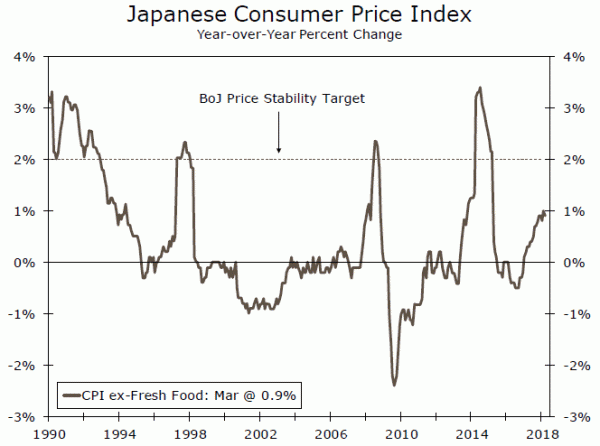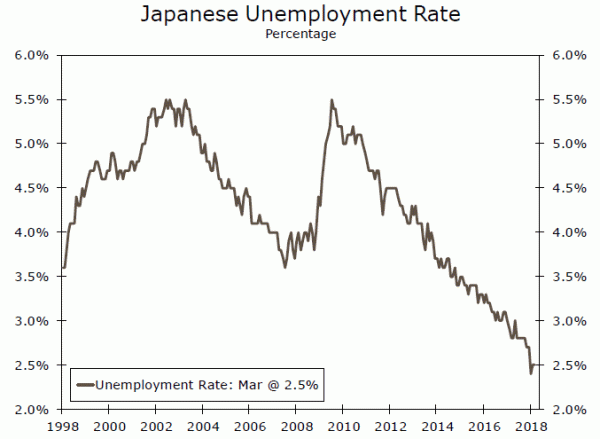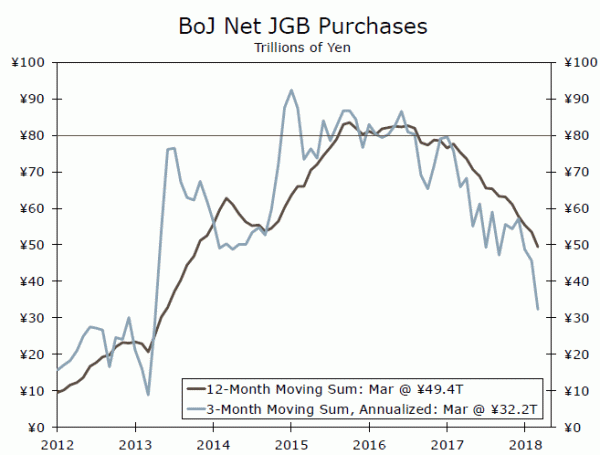The Bank of Japan (BoJ) held interest rates steady and kept its comprehensive stimulus program intact, but it also dropped the deadline for achieving its 2.0 percent target making it easier to wait for the medicine to take.
The Deadline is the Ultimate Motivator, Its Absence is Good Cover
At its scheduled meeting this week, the Bank of Japan (BoJ) held interest rates steady and maintained its comprehensive program of monetary policy support, but it dropped any reference to a timeline for achieving its 2.0 percent inflation target. Previously it had been targeting the end of fiscal year 2019 (March 2020). CPI inflation in Japan has rarely been in range of the 2.0 percent stability target over the past 20 years.
Financial markets seized upon the dropping of any date reference hitting the inflation target, but at the press conference that followed, BoJ Governor Kuroda affirmed multiple times that the removal of the date was not in any way an indication of monetary policy bias.
The BoJ decision was decided in an 8-1 majority vote, with the lone dissenter (Mr. Kataoka), again preferring additional easing measures. Notably, this was the first meeting that included recently appointed Deputy Governor Wakatabe who is generally viewed as a dovish policymaker.
The fact that Mr. Wakatabe did not join Mr. Kataoka in calling for additional easing measures may explain why the target date for achieving 2.0 percent inflation was removed.
Without the clock ticking and a specific deadline approaching, there is less urgency in the administration of monetary policy. In that regard, the removal of the deadline offered the newly minted Deputy Governor the opportunity to go along with the majority in good conscience that doing so would not betray his dovish tendencies. That does not preclude Mr. Wakatabe from eventually calling for additional measures, but for now at least, it provides time for the monetary policy medicine to take without the need for an immediate additional dose. The historically low unemployment rate may eventually result in wage-push inflation, but we are skeptical given the absence of any serious indication of employers raising wages.
The BoJ said it would continue to purchase 10-year Japanese government bonds (JGBs) such that yield will remain at “around zero percent” and that it would maintain its bond purchases at more or less the current pace of ¥80 trillion annually.
As we have observed previously, however, there is a practical limit to how much JGBs the BoJ can purchase. Over the past 12 months for example, the BoJ has only purchased about ¥50 trillion. Still, with 10-year JGBs yielding less than 0.06 percent as of this writing, the BoJ’s pace of purchases is sufficient to keep the yield close to zero as it said it would.
In summary, we see the dropping of the target date for hitting the inflation target as further affirmation that any tightening remains a long way off. Between now and the end of next year, the fastest pace of year-over-year CPI inflation we have in our forecast is just 1.5 percent.



